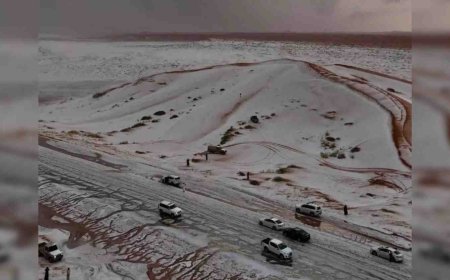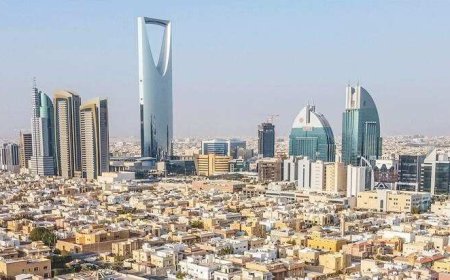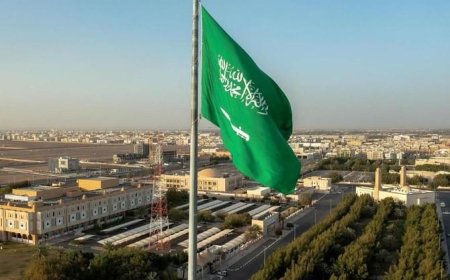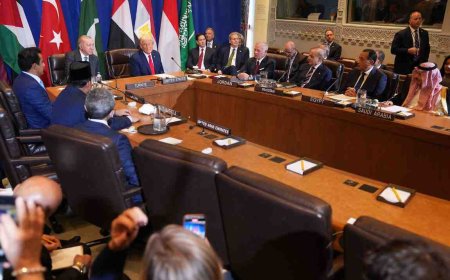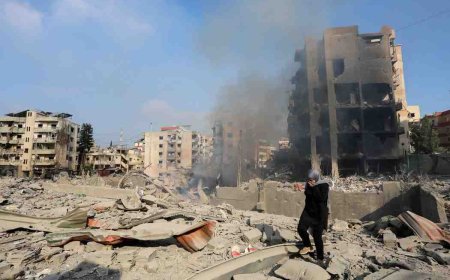Saudi Arabia to Hold Salat al-Istisqa on Nov 13: King Salman Urges Citizens to Pray for Rain
King Salman has called for a national Salat al-Istisqa prayer for rain across Saudi Arabia. Discover the date, spiritual meaning, and how this ancient Islamic tradition unites the nation in faith and supplication.

Saudi Arabia Unites in Prayer: King Salman Calls for National Salat al-Istisqa for Rain
In a powerful move that blends deep religious tradition with contemporary environmental concerns, King Salman bin Abdulaziz, Custodian of the Two Holy Mosques, has issued a royal directive for a nationwide Salat al-Istisqa—the Islamic prayer for rain. The call invites every citizen and resident across all regions of Saudi Arabia to participate in this collective supplication.
This solemn appeal, channeled through the Royal Court, is a direct revival of the Sunnah (practice) of the Prophet Muhammad. It is performed in response to drought and water scarcity, uniting the community in a plea for divine mercy and sustenance. The King’s message specifically emphasizes praying for beneficial rain, highlighting a desire for precipitation that nourishes the land and its people.
A Spiritual Response to Climatic Challenges
The announcement comes at a time of heightened concern over water resources and dry conditions in the Kingdom. However, the leadership frames this not just as an environmental issue, but as a moment for moral and spiritual renewal. The Salat al-Istisqa serves as a profound symbol of communal solidarity, humility before God, and national unity in the face of shared challenges.
By uniting the nation in this act of worship, the monarchy reinforces its role as the guardian of both faith and societal well-being. The coordinated prayer demonstrates how religious tradition remains central to public life and national identity in Saudi Arabia.
How the Salat al-Istisqa is Performed
The Salat al-Istisqa is a congregational prayer with a specific format rooted in prophetic tradition. It consists of two units (rak'ahs), typically performed in open spaces or large mosques to accommodate the masses. The ritual is characterized by:
-
A Sermon (Khutbah): The Imam delivers a sermon that focuses on themes of repentance, seeking forgiveness, and the importance of charity.
-
Acts of Supplication: Worshippers raise their hands in sincere du'a (supplication), passionately asking Allah for rain, mercy, and relief.
-
Symbolic Gestures: In some traditions, the Imam may turn his cloak inside out during the sermon, symbolizing a plea for a change in circumstances.
The King’s directive ensures this prayer will be held simultaneously across the Kingdom, a massive logistical and spiritual undertaking that amplifies its power and symbolism.
Also Read: Saudi Arabia Links Israel Normalisation to Palestinian Statehood in Clear Policy Stand
More Than a Prayer: A Call for Collective Responsibility
While the primary goal is to seek rainfall, the Salat al-Istisqa carries a deeper, transformative message. It serves as a public reminder of the community's mutual responsibilities:
-
Moral Renewal: The prayer is intrinsically linked to repentance and returning to faith with sincere hearts.
-
Stewardship: It encourages responsible use of natural resources, reminding people to be conscious of water conservation.
-
Social Solidarity: It fosters a sense of shared destiny and compels the community to support one another, especially those most affected by water scarcity.
A Nation Pauses in Unity
For the public, the designated day will see mosques across Saudi Arabia dedicating time for this special congregation. Worshippers are encouraged to participate with introspection and a commitment to spiritual and ethical growth.
This official revival of the Istisqa prayer underscores the enduring relevance of Islamic heritage in addressing modern challenges. It beautifully illustrates the convergence of faith, environment, and national identity, presenting a striking example of a society navigating its future while firmly rooted in its traditions.
In summary, King Salman's call for Salat al-Istisqa is far more than a ritual; it is a national invitation to pause, reflect, and turn toward God collectively. It is an act of humility, a statement of hope, and a powerful demonstration of unity that will resonate across the entire Kingdom.
What's Your Reaction?

















